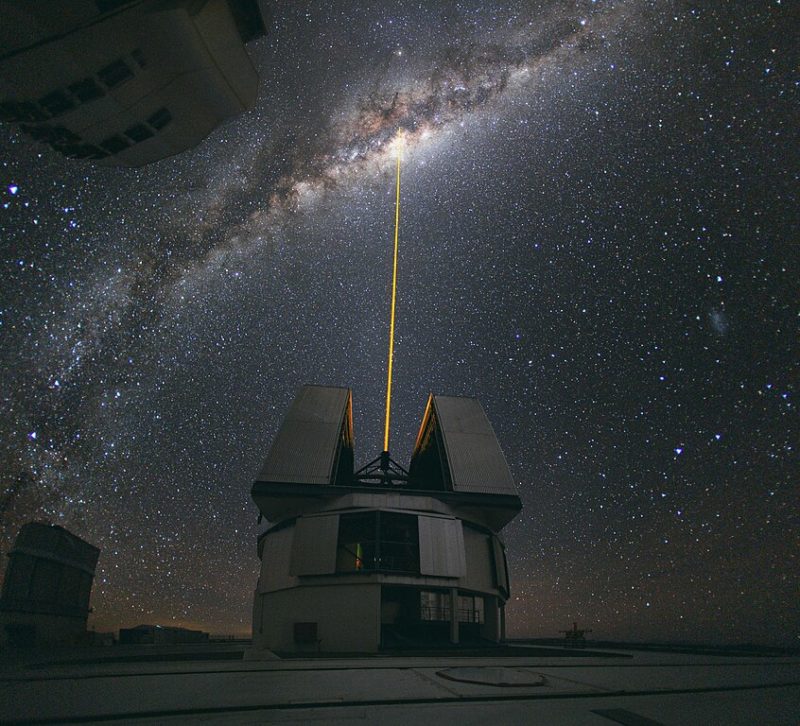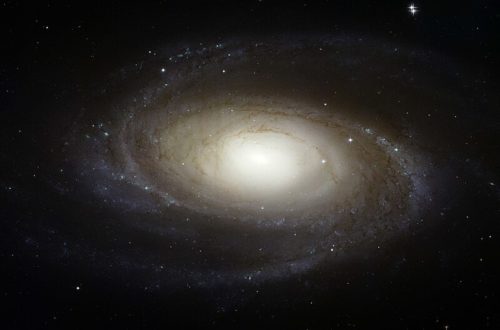Why Astronomy and Astrophysics Aren’t the Same Thing – And Why It Matters

Astronomy and astrophysics are often used interchangeably, but did you know they’re actually different fields of study?
While both deal with the universe and its contents, astronomy focuses on observing and describing celestial objects, while astrophysics delves deeper into the physics and mechanics behind them. This distinction may seem minor, but understanding the difference can lead to a deeper appreciation of the complexity of our universe.
Astronomy vs Astrophysics – What’s the Difference?
Astronomy and astrophysics are two closely related fields that are often confused as being the same thing. However, there are fundamental differences between the two that are important to understand. Astronomy is the study of celestial objects, such as stars, planets, and galaxies, and their properties, behavior, and evolution. It is an observational science that relies on telescopes and other instruments to gather data.
On the other hand, astrophysics is a branch of physics that applies the laws of physics to understand the behavior and properties of celestial objects. It is a theoretical science that uses mathematical models to explain phenomena.
Understanding the difference between astronomy and astrophysics is critical for accurate analysis. While they may overlap in some areas, they have distinct goals and methods. By knowing when to use each discipline, scientists can gain a more complete understanding of the universe and make more accurate predictions about its behavior.
Why It Matters That We Understand The Difference Between Astronomy and Astrophysics
Understanding the difference between astronomy and astrophysics is not only a matter of semantics, but it also has significant implications for scientific research. While both disciplines share commonalities in terms of their subject matter, they differ in their approach to studying celestial phenomena.
Astronomy focuses on the observation and description of celestial objects and their behavior, while astrophysics seeks to explain the underlying physical processes that govern them.
Knowing the distinction between the two is critical for accurate analysis and interpretation of data. For instance, astronomers may use astrophysics to explain the origin and behavior of celestial objects they observe. Conversely, astrophysicists may rely on astronomy to provide them with data to test their theories.
Furthermore, understanding the differences between astronomy and astrophysics can help to avoid confusion when communicating with other scientists or the public. In short, knowing when to use each discipline is essential for advancing our knowledge of the universe.
Explaining the Fundamentals of Astronomy
Astronomy, as a scientific pursuit, meticulously observes and analyzes celestial bodies and phenomena through a rigorous lens of empirical study. It relies on precise measurements, mathematical models, and theoretical frameworks to decipher the fundamental principles governing the cosmos.
This scientific discipline employs cutting-edge technologies, such as telescopes across the electromagnetic spectrum, spectroscopy, and computational simulations, to unravel the intricate mysteries of the universe. Through systematic observation and experimentation, astronomy continually advances our understanding of the physical laws that shape celestial objects’ properties, behaviors, and interactions, fostering a deeper comprehension of the cosmos’s scientific intricacies.
Examining How Astrophysics Fits Into The Picture
In examining how astrophysics fits into the picture, we must understand that it is a branch of astronomy that focuses on the physical properties and behavior of celestial objects. It involves a combination of physics and astronomy to study the universe and its various phenomena. Astrophysics uses mathematical models and theories to explain the behavior of stars, galaxies, and other celestial objects. It also explores the fundamental principles that govern the universe as a whole.
Understanding Where Both Disciplines Overlap and Differ
Understanding where both disciplines overlap and differ is crucial for anyone interested in astronomy and astrophysics. While both fields deal with the study of celestial objects and phenomena, they differ in their methods and focus.
Astronomy focuses on the observation and study of celestial objects, including planets, stars, and galaxies. In contrast, astrophysics is more concerned with the physical processes that govern these celestial objects.
By understanding where these disciplines overlap, we can gain a deeper appreciation for the complexity of the universe and the interplay between its various components. At the same time, recognizing the differences between the two fields allows us to use each discipline effectively and accurately in our analysis.
Conclusion
In short, it is crucial to understand the differences between astronomy and astrophysics and when to utilize each discipline for accurate analysis. Although the two fields share similarities, such as studying celestial objects, they have distinct approaches and focuses. Astronomy primarily deals with observing and describing the universe, while astrophysics uses the principles of physics to explain the behavior and properties of these objects.
It is also important to note that both disciplines overlap in certain areas. However, knowing when to use each discipline is critical for accurate analysis. For instance, if one wants to understand the composition and behavior of stars, astrophysics would be the appropriate discipline to use. On the other hand, if one is interested in identifying and cataloging celestial objects, astronomy would be the way to go.
Understanding the differences and nuances between astronomy and astrophysics will not only aid in conducting more precise research but also help in appreciating the complexities and wonders of the universe.
FAQs
Which is better astronomy or astrophysics?
Astronomy and astrophysics are two closely related fields of study that deal with the study of the universe and its properties. In terms of which field is better than the other, it ultimately depends on one’s interests and career goals. If an individual enjoys observing celestial objects and analyzing their properties from an observational standpoint, then astronomy may be a better fit for them.
On the other hand, if someone enjoys applying physics principles to understand celestial phenomena’s underlying mechanisms better, then astrophysics may be more suitable for them. In short, the choice between which field is better ultimately comes down to personal preference and career aspirations.
Is an astrophysicist and astronomer the same?
Astrophysicists and astronomers are not exactly the same, although there is some overlap in their fields of study.
Astrophysics is a branch of astronomy that deals with the physical and chemical properties of celestial objects, such as stars, planets, galaxies, and black holes. It involves the application of physics concepts to understand the behavior and evolution of these objects.
Astronomy, on the other hand, is a broader field that encompasses the study of all celestial bodies and phenomena visible from Earth. It includes observations and measurements of objects in space using telescopes and other instruments to gather data that can be used to develop theories about the universe.
While both astrophysicists and astronomers may use similar tools and techniques to study celestial bodies, astrophysicists tend to focus more on theoretical models based on physical laws while astronomers often work with observational data. Additionally, astrophysicists may work on topics such as dark matter or gravitational waves while astronomers might specialize in studying specific types of stars or planets.
Does NASA take astrophysicists?
Yes, NASA does take astrophysicists. In fact, astrophysicists play a crucial role in many of NASA’s missions and projects. These scientists are responsible for studying the physical properties of celestial objects such as stars, planets, and galaxies. They use advanced mathematical models and theories to understand the complex dynamics of the universe.
Astrophysicists at NASA work on a variety of projects such as designing new telescopes, analyzing data from space missions like the Hubble Space Telescope and Kepler Mission, and developing new technologies to study space. They also conduct research on topics such as dark matter, black holes, and gravitational waves.
To become an astrophysicist at NASA, one typically needs to have a PhD in astrophysics. Many researchers start their careers at universities or research institutions before joining NASA. There are also internship opportunities available for students interested in pursuing a career in astrophysics at NASA. Overall, NASA values the contributions of astrophysicists in advancing our understanding of the universe and is always looking for talented individuals to join their team.
Can you be an astronomer with an astrophysics degree?
Yes, it is possible to become an astronomer with an astrophysics degree. An astrophysics degree provides a strong foundation in the physical principles that govern the behavior of celestial objects, such as stars and galaxies. This knowledge is crucial for understanding astronomical phenomena and for conducting research in the field.
As an astronomer with an astrophysics degree, one can work in a variety of settings, including universities, research institutions, and observatories. They may conduct research on topics such as star formation, galaxy evolution, or the properties of black holes. Additionally, they may use telescopes or other instruments to observe celestial objects and collect data to analyze.
To become an astronomer with an astrophysics degree, one may need to pursue additional education or training beyond their undergraduate degree. This could include pursuing a graduate degree in astronomy or gaining experience working at observatories or other research institutions. Overall, while an astrophysics degree does not guarantee a career as an astronomer, it can provide a strong foundation for pursuing this field and conducting important research on the mysteries of our universe.
See also: Astronomy vs. Cosmology
Would you like to receive similar articles by email?





